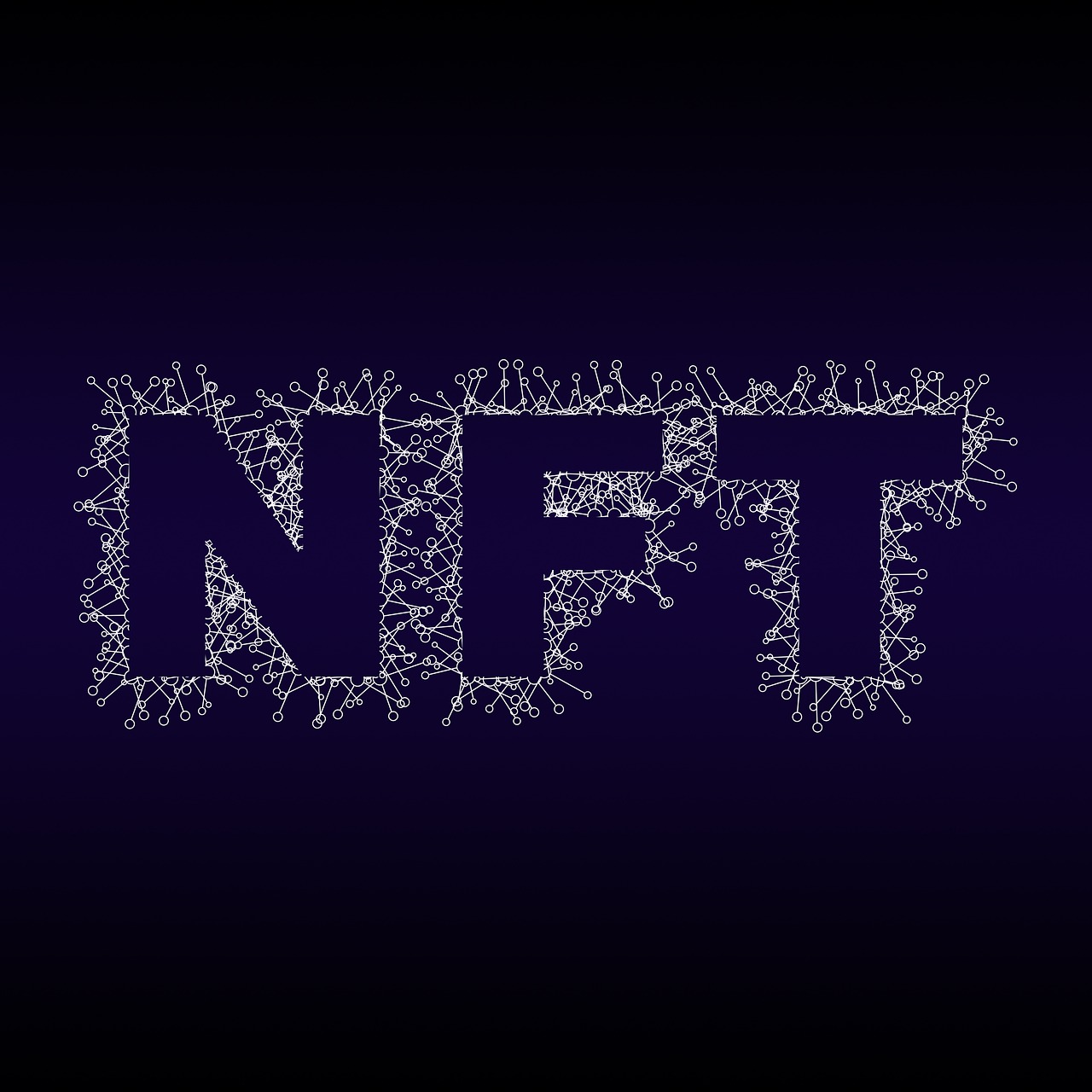Berlin is still better than its reputation and especially in the area of fintechs, the German capital remains unchallenged in the DACH region. But like all other fintechs, the Berlin-based companies must inevitably ask themselves after their first successful steps on the domestic market how they are to continue. Expansion into the U.S. is often the logical response. After all, the U.S. is the most important market for late-stage startup financing. This is evidenced by the financing into the Unicorns from the DACH region in recent years.
The Berlin Finance Initiative was founded in 2019 with the idea of strengthening and connecting the city’s ecosystem and sees itself as a hub for technology-based finance and the digital economy. With BFI USA, the initiative has been building a transatlantic bridge since this year, helping Berlin fintechs get to know the U.S. market and bringing them together with key players on the other side of the Atlantic.
We talk to Achim Oelgarth, founder of the Berlin Finance Initiative and CEO of the East German Banking Association and Alexander Daamen, Head of Berlin Finance Initiative USA, on the right time to expand out of the capital into the U.S., on fintech hotspots and their thematic focus, and on the right network to build during the growth phase.
Longing for America: Does this also apply to Berlin fintechs?
Alexander Daamen: There are many factual reasons why Berlin fintechs should expand into the US. Ultimately, all companies are looking for a market large enough to support and scale their business model. Berlin is a major center for finance and tech startups in Europe, but if you want to be a global player, expanding to the U.S. is a must. New York or San Francisco have a depth of talent and capital that can only be found there. One of the things that makes the U.S. so special is its unique energy. This energy can also make a big difference in Europe.
To answer on the emotional level: I have been here for 1 1/2 years now, and I feel very comfortable. But I think that’s because I’ve had time to settle in and figure out where everything is. It’s a similar story with the fintechs from Berlin: You need a certain start-up time – or enough time and (financial) breathing room to find your way around. With our “Fin-Tech Leaders” program, we try to navigate Berlin fintechs through the US fintech jungle.
When will the US market become interesting for Berlin fintechs? As early as possible vs. established business in DACH?
Achim Oelgarth: It’s not so much the maturity of the start-up that matters, but rather the razor-sharp focus on a worthwhile market segment. The consumer market, which many Techs address, is a tough nut to crack in the US. USA and Europe are fundamentally different. For example, Americans still love their checks and online banking is underdeveloped. What works for us can be a flop in the USA.
The American B2B market is promising for FinTechs. Be it in the ESG environment or in the traditional insurance or (re)financing segment without requiring a separate US banking or securities license. The market for embedded finance, open banking and cloud applications is developing strongly. And in the sustainability megatrend, we have pioneering FinTechs that are now looking to the U.S. market – as first movers.
Daamen: I see a clear advantage in starting with the home market if you are just starting out and want to expand internationally. And why? Because you can learn about local regulatory and customer preferences, which will help avoid costly mistakes when entering other markets. However, if the fintech company is already established in Germany and has been growing steadily for some time, it is probably better to enter the U.S. market early.
The BFI wants to build a transatlantic bridge between Berlin and the US – why is now the right time for Berlin fintechs?
Oelgarth: The year 2022 is characterized by a high degree of uncertainty. And we built the transatlantic bridge together with the Berlin Business Office USA with BFI USA in 2022.

Why now of all times?
Oelgarth: The German-American relations that have grown historically over decades, the continued high interest of U.S. citizens in Berlin, our mutual understanding of values as free democracies and the mutual investment security make the U.S. market very interesting for our companies – vice versa.
What works in the SME and industrial sectors is less pronounced in the financial sector. New technological possibilities, changing user behavior, and the move toward NetZero are creating new opportunities, especially for fintechs from Berlin. And the good thing about crises is that no one can rest on their laurels; everyone is looking for new points of contact. Berlin’s transatlantic program thus came at the perfect time – as evidenced by the response.
Who is behind the Berlin Finance Initiative and how long has it been in existence?
Oelgarth: The BFI emerged in 2019 from a very small circle, initially with the East German Bankers Association as an incubator, and since then together with key stakeholders from Berlin’s finance and tech industry as well as politics. The BFI is backed by traditional banks, FinTechs, investors, associations and the Berlin Senate.
Since 2020, we have been working in close partnership with de:hub FinTech Berlin and have established this platform as a national and international contact for everything to do with finance and tech. One of the most exciting projects at the moment is that we want to build a physical place, the Berlin House of Finance & Tech as the hub of the metropolis.
What was the idea that gave rise to the BFI? What specific goal is the city of Berlin pursuing with this?
Oelgarth: Berlin has developed a new self-image as Europe’s digital financial center. The metropolis has been attracting talented and creative minds from all over the world for years, has excellent universities, business schools and is a political power house. And investment in Berlin tech companies in total is the highest in the EU. The fact that over 300 FinTechs and most of Germany’s unicorns are at home here today underscores the claim. And for all the advantages of Berlin’s vibrant decentralization, it was time to take it to the next level and join forces in Berlin.
The Berlin Senate has backed the BFI’s vision and is promoting it in order to perpetuate Berlin’s locational advantages for FinTechs. This also involves sustainability and diversity, more women as founders, and more investment in the industry.
Which cities are particularly in focus for Berlin fintechs?
Daamen: In our U.S. initiative, we are focusing particularly on the East Coast, which not only offers interesting and versatile locations for Berlin fintechs, but is also simply the fastest to reach from Germany. The time difference between the East Coast and Berlin is also an advantage over San Francisco or Los Angeles.
Next to New York City, the international financial center and No. 1 in the U.S. with more than 1,000 fintechs, Atlanta is the “hidden champion” in the United States. Atlanta is called “Transaction Alley” for a reason – over 70 percent of U.S. transactions pass through this financial center. In addition to its strong payments and banking sector, Atlanta is also home to many Fortune 500 companies (including Coca-Cola, Delta Air Lines, Global Payment).

What about Miami? A city that is finally becoming popular with crypto companies …
Daamen: Miami has become a hub for cryptocurrencies and NFTs (non-fungible tokens) – the city’s appeal attracting innovators, investors and entrepreneurs excited about the future of blockchain technology.
In turn, the Bay Area is in focus as a place of innovation and inspiration, and is known for its high concentration of high-quality fintech companies (e.g., Stripe, Plaid, Chime), talent, fintech-friendly rules, and high financial strength. Next year, we will focus more on San Francisco and then take a closer look at the advantages of the Bay Area for the Berlin fintech scene.
There was already a delegation to Atlanta and New York. What support for market entry do fintechs find there?
Daamen: In October, we traveled to Atlanta and New York with a group of Berlin fintechs and were able to get an idea of the infrastructure. The Atlanta Metro Chamber and the “State of Georgia” have been especially welcoming, as has the new Blockchain Center. Also worth noting is the Advanced Technology Development Center (ATDC) and FinTech Lab at Georgia Tech, which underpins Atlanta’s ambitions to strengthen the fintech sector. As our USA initiative is based in New York, we have also built up a strong network of business contacts there. On November 1, we held our own event in New York City at Deutsche Bank. The event was a great success and allowed us to build on the connections we had already made in New York.
What was the feedback from the participating fintechs and what specifically did they take away from it?
Daamen: The delegation trip was a mega success. The response was very positive and the quality of the contacts with potential partners and investors as well as the professional depth were emphasized. Atlanta in particular surprised and convinced the participants with its diverse location advantages. The enthusiasm and drive of the Americans was contagious and enriching for the participants. And to put it in the words of one of our first generation fintech leaders “This event here in New York really killed it. Great work!
Fintechs will soon be setting off for Miami – what exactly awaits them there?
Daamen: We are really looking forward to our December 15 event in Miami, which will focus on DeFi. Both Miami and Berlin are considered DeFi hotspots in the global fintech scene and we are excited to have the opportunity to increase Berlin’s presence as a DeFi hotspot and introduce promising companies from Berlin to the Miami ecosystem.

Due to the current developments in the crypto/DeFi scene, our focus is now less on go-to-market and more on professional exchange about (EU) regulations, use cases & inspirations from Berlin and vice versa. We will also stream the discussions live to Berlin. For those who can’t be there in Miami, we will organize a Miami-related event in Berlin next year and hopefully continue the dialogue.
Is the current FTX scandal momentum for Berlin-based crypto companies in particular?
Oelgarth: The fact that we would be in Miami in mid-December was already clear before the scandal broke. But FTX has already influenced the concrete planning, as Alex said. The goal now is to strengthen transatlantic dialogue, learn from each other, and put Berlin’s crypto and DeFi industries in the showcase. It’s about trust in blockchain technology and the crypto market.
MiCA and the KWG could serve as a global role model. What do both conditions mean for transatlantic dialogue and for marketing to Germany or Berlin?
Oelgarth: Our U.S. partners are looking very closely at MiCA and the crypto custody rules in the KWG. Our dialog at BlockChain Centre Atlanta in October showed that people there think similarly, but we are further along. In this respect, our regulatory framework creates a confidence edge for the moment, which creates a certain marketing effect.
However, MiCA is not suitable for true DeFi either. It lends itself to the creation of a partially centralized DeFi ecosystem, which is an important step for one of the largest markets in the world – the EU. Regulation will reduce uncertainty and fear among more traditional investors and create the necessary environment and investment for broader adoption of cryptoassets in the EEA. However, even our European legal framework would not have prevented the FTX scandal – as far as I know.
How can I, as a Berlin fintech, become part of a delegation?
Oelgarth: The program is open to any fintech from Berlin that is thinking about internationalization in the U.S. or is concretely implementing it. As the program is supported by the Berlin government, Senate Department for Economy, Energy and Enterprises and by the European Union’s Corona Recovery Program #ReactEU, we have these guidelines here. It is different with the programming of the events. Of course, we also look at special technical expertise, which does not necessarily have to be related to Berlin.
In addition to selected delegation trips, other actions are taking place around the initiative – what are they?
Daamen: Our goal is to help Berlin fintechs discover the enormous opportunities in the U.S. market and decide for themselves whether they are ready to expand. We do this primarily through events in New York, Atlanta, Miami and San Francisco, where we can network with key partners such as investors and fintechs. In addition to these events, we also offer webinars and workshops that provide practical information on the U.S. market, the fintech landscape, market entry opportunities, building key personnel, and regulatory issues. Our next “Market Readiness” workshop is already next Thursday, December 8 and also in our planned events in 2023 we will invite all Berlin Fintechs to develop and test their expansion strategy.
What kind of support awaits Berlin fintechs after their launch in the USA?
Daamen: We will continue to expand our “Fin-Tech Leaders” network and provide startups with access to the best local partners, from legal advisors to investors. We will document all insights from various conversations, interviews, panel discussions, etc., in a “playbook” that will also be available as a companion piece for other startups interested in expansion opportunities in the US.
